Recent projects supported by SHIP
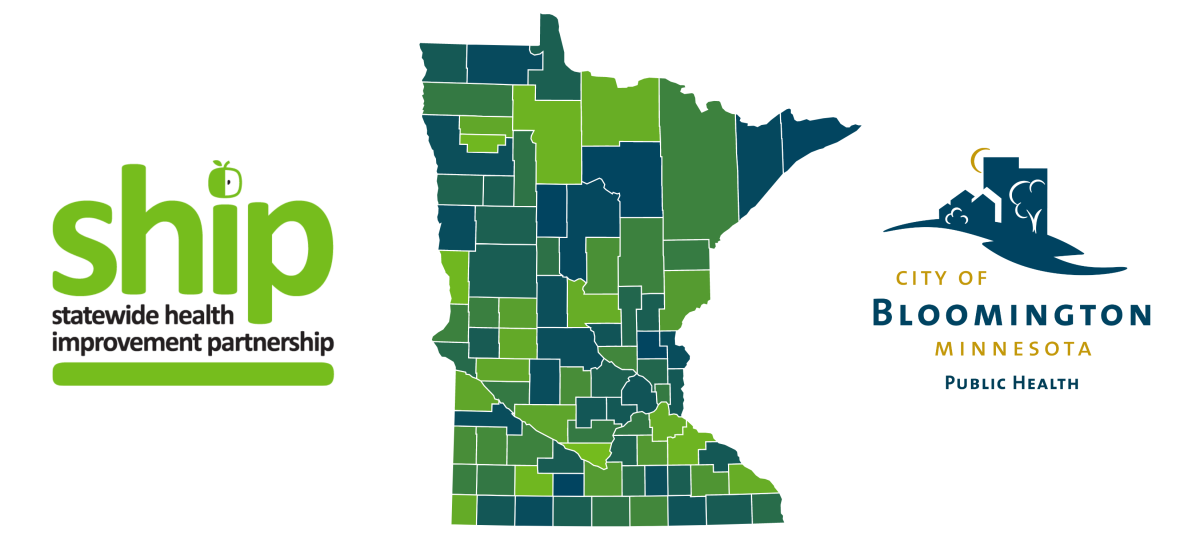
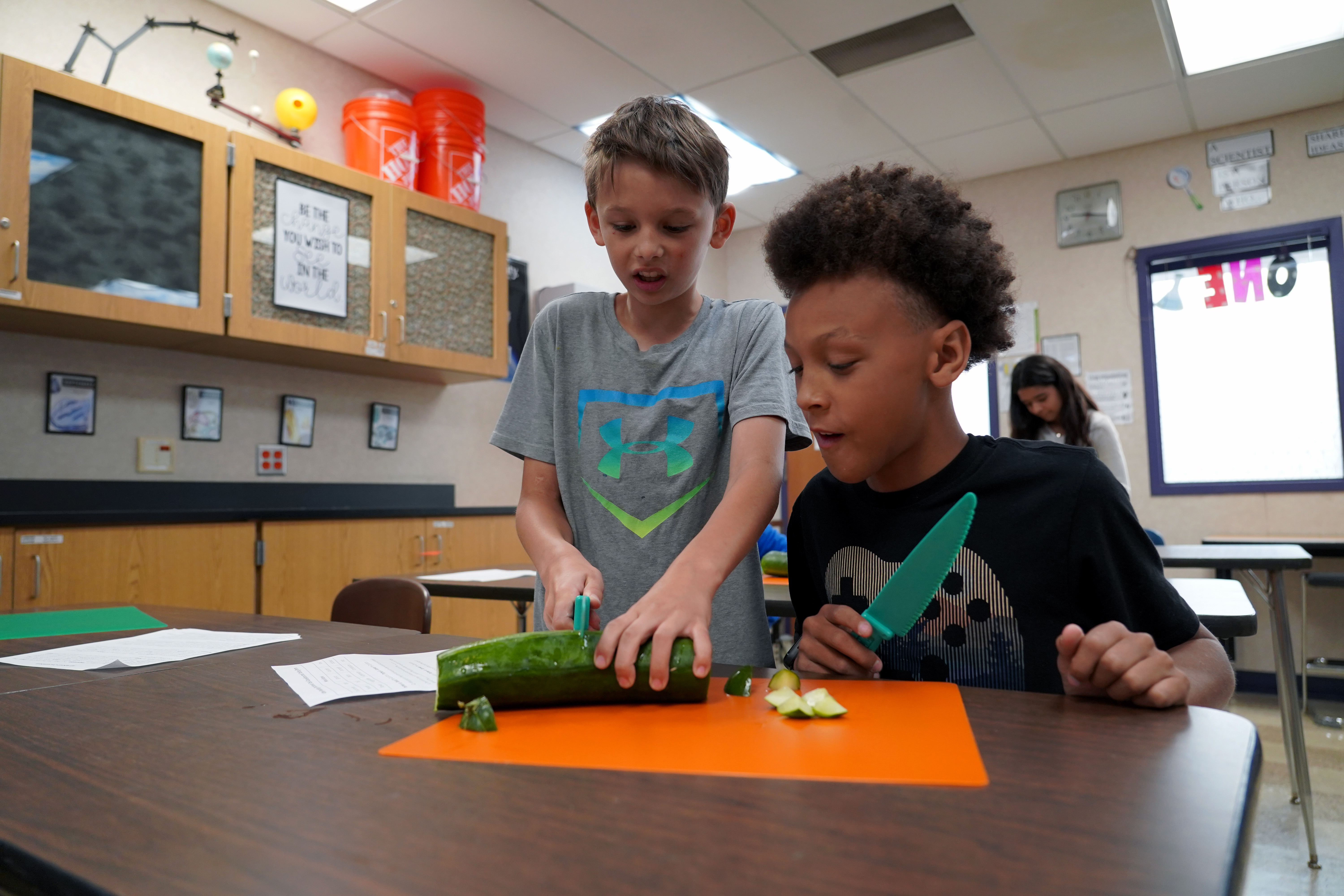
Photo courtesy of Bloomington Public Schools
Summer Quest: Building skills in a “camp-meets-school” setting
For many elementary school students, lagging foundational skills can be a barrier to learning. Some students are still learning to spell their last name. That was the situation for one student in a Summer Quest class led by teacher Courtney Ramirez.
“We worked the entire two weeks that I had him in my class on how to spell his name,” shared Courtney. “If that's a skill that you have a gap in and you didn't have somebody slow down, work with you on it…that's going to hinder a lot of things for you moving forward.”
When Courtney saw the student again during the regular school year, he was able to easily recite his full name when asked. “And then he looked at me like, oh, yeah, I learned how to do that here last year,” said Courtney, chuckling at the memory.
That is just one of the many success stories from Bloomington Public Schools’ Summer Quest, a four-week program designed to support students in the areas of academic and social emotional learning.
Summer Quest serves up to 800 students entering grades 1-6 who are referred to the program based on data and teacher recommendations. Programming is designed to re-engage students through hands-on learning, student voice and choice, and outdoor opportunities.
The program is often described as a “camp-meets-school” experience. “We keep kids moving through new activities every 20-30 minutes,” shared Dr. Molly Coyne, Director of Learning Supports. A typical day might include a mindfulness practice, a math challenge, recess, a visit from a therapy dog, a hands-on activity in the ‘maker space,’ and more.
Staff members work to design and continuously improve programming to meet student needs. These needs include:
- Language learning, with around half of students being English language learners,
- Culturally relevant instruction, with significantly more students of color in summer programming than in school-year programs, and
- Sensory-friendly environments.
All the hard work by Summer Quest staff is paying off. “There are lots of tears from students on the last day of Quest,” shared Molly. “They don’t want the program to end.”
It’s also been a positive experience for the teachers who apply and earn a spot in the program. Teacher retention is high; approximately 80% of teachers return to Summer Quest year-over-year.
The end goal? Keep the students’ momentum going through a fun and supportive setting. “A lot of our summer push is to get kids to reengage in school, like school, and come back in the fall ready to participate,” said Molly.
Bloomington Public Schools applied for and received Statewide Health Improvement Partnership (SHIP) funds from Bloomington Public Health to support Summer Quest and to provide teachers and paraprofessionals training in social emotional learning that will serve the district for years to come.
The power of two wheels: mapping a bike-friendly future
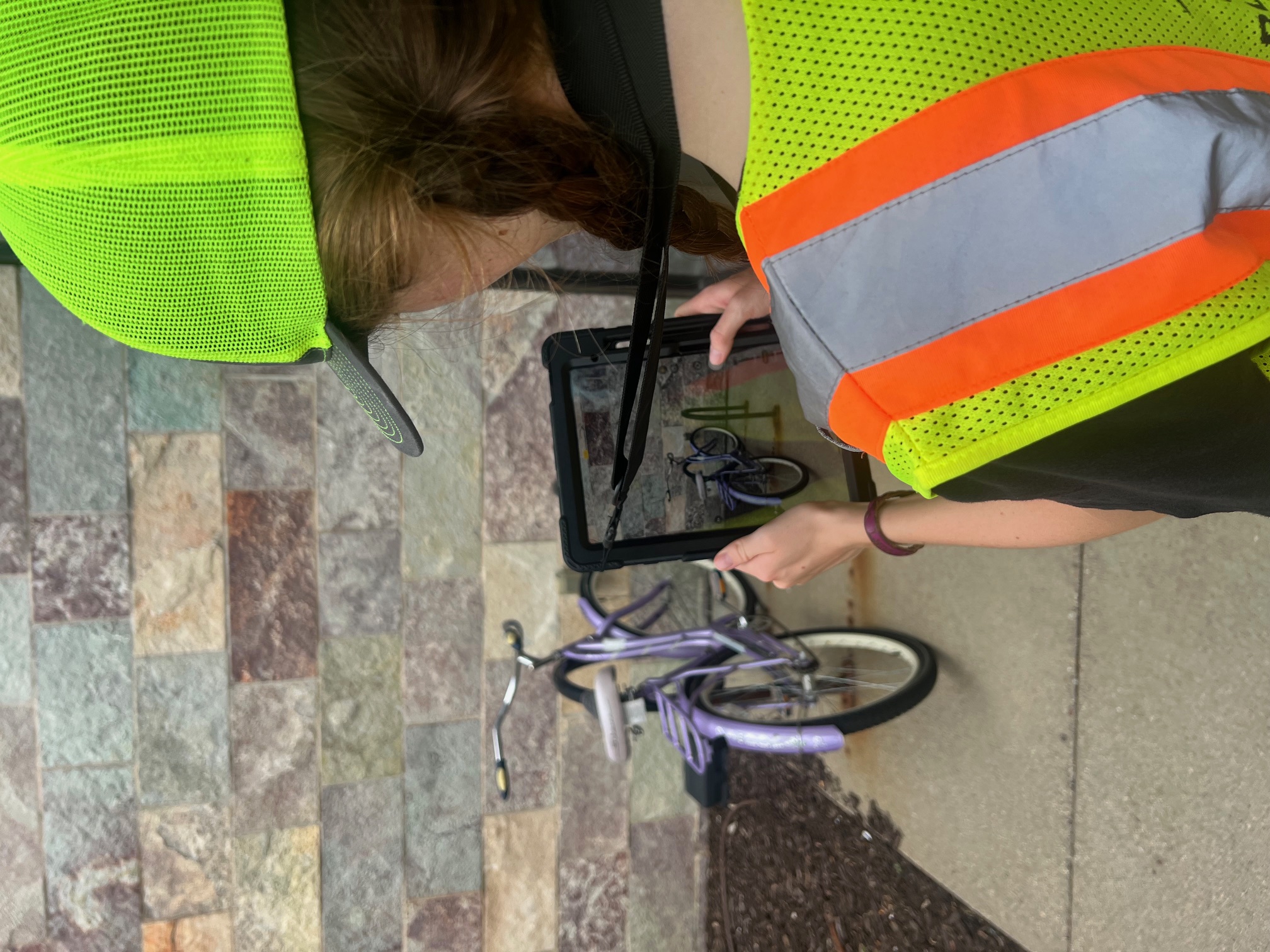
Parking is always a hot topic for cities, but the conversation often focuses on cars. So, what about bikes? In Bloomington, Edina and Richfield, while many residents bike for fun, data shows that few residents use bikes for everyday errands or commuting. As e-bikes make longer trips more practical, the City of Bloomington saw a chance to rethink how people get around. The first step? Understanding the city's current bike parking infrastructure to build a more connected, bike-friendly future.
Bloomington Public Health partnered with the City of Bloomington’s Sustainability Division on a project to support a more bike-friendly community and promote active transportation as a viable option for all. While this project originated in Bloomington, funding from the Statewide Health Improvement Partnership allowed the cities of Edina and Richfield to also learn about their bike parking infrastructure.
Interns were brought on to Bloomington Public Health to find and add data points to a centralized, GIS-based inventory of bike parking infrastructure. Over three months, interns Gwen Reoch, Lynn Reynolds and Kevin Wairimu traversed each city block by block to collect data on each bike rack – 690 bike racks logged and hundreds of miles biked. Through sun, rain, wind and humidity, they learned firsthand the experience of a bike commuter. One takeaway? Biking is essential to bridging the gap of the “last mile” between public transit and home.
“By mapping bike racks in all three cities served by Bloomington Public Health, I noticed that resource allocation is not always equitable and some areas that could have bike racks didn’t,” said Lynn Reynolds. “Not everybody has access to a car and while there is existing bike infrastructure, not everybody might feel safe biking near busy roads or locking their bike on a street pole.”
This work was not easy, as Bloomington, Edina and Richfield are home to some of the busiest commercial areas in the Twin Cities metro, providing little shade or respite from the weather. “I must have drunk at least 140 iced teas while doing data collection,” said Kevin Wairimu.
The data will be used by city departments and partners to manage, plan and prioritize bike infrastructure projects, enabling them to make data-informed decisions. It will also inform planning and policy measures to ensure more equitable infrastructure investments to make bicycle parking available throughout the three cities.
Learn the basics of bike parking.
Learn more about the City of Bloomington’s Bicycle Parking Mapping Project.
Bloomington Public Health partnered with Parks and Recreation departments from Bloomington, Edina, and Richfield and a local artist to create Hello, Nature! Made possible by the Statewide Health Improvement Partnership (SHIP), this activity guide aims to strengthen community well-being by connecting people to nature, each other, and the places they live.
Translated into Spanish and Somali, this welcoming guide invites residents to discover our robust park systems through guided activities such as walking, biking, and water-based exploration. It promotes health and well-being by highlighting how nature-based movement can be accessible and enjoyable, while also aiming to reduce health inequities by increasing awareness of nearby natural spaces and low-cost activities.
Southgate Apartments is an affordable housing community offering more than 240 apartment units. The Healthy Way Project will increase residents’ access to physical activity opportunities and healthy foods. Southgate Apartments staff and tenant leaders will partner with local yoga and Zumba instructors to offer regular onsite classes that are designed for participants of all ages and abilities.
Additionally, grant funds will support the expansion of a mobile food pantry into a permanent onsite food shelf for residents, to better meet demand. Southgate’s Property Manager will become certified by a hunger relief agency in the areas of food safety, preparation, and storage.
Thank you to HOME Line for their partnership and for administering the funding for these grants.
Woodlawn Terrace Cooperative is a resident-owned manufactured home community in Richfield. Residents wanted to share fresh food that is grown without chemicals with one another. Grocery stores are not close by, and some residents don’t have cars, making it difficult for residents to carry groceries home when walking or taking the bus.
Grant funds were used to create a community garden of raised beds cultivated by the residents at Woodlawn Terrace. The garden has increased residents’ access to fresh vegetables and physical activity and helped to create a sense of social connectedness.
Thank you to HOME Line for their partnership and for administering the funding for these grants.
A More Inclusive Market: Richfield's Commitment to Accessibility
The Richfield Farmers Market, a vibrant hub in a diverse community of 37,000, has taken significant strides to enhance accessibility and inclusivity. With an average of 1,500 attendees per outdoor market day and 600 per indoor winter market, the market serves as a vital gathering place for the community.
Recognizing the Need for Improvement
In 2022, the market team identified two key areas for improvement. First, the limited bike parking facilities were discouraging cyclists from attending. Second, the predominantly English-language signage hindered the participation of non-English speaking community members.
Expanding Accessibility
To address the issue of bike parking, the market expanded its bike rack capacity from two to six, significantly increasing convenience for cyclists. A dedicated "Bike to the Market Day" event further encouraged cycling as a mode of transportation to the market.
Simultaneously, the market embarked on a multilingual signage initiative. By translating key signage into Spanish and Somali, the market made it easier for diverse communities to navigate the space and access critical information. This included details about SNAP/EBT and Market Bucks programs, Power of Produce Club, and live music performances.
Expanding Outreach
To further broaden its reach, the market launched a multilingual marketing campaign. This involved advertising in The Sahan Journal, a publication focused on telling the stories of immigrants and communities of color, and with La Raza, a local Spanish-language radio station. These advertisements highlighted the market's accessibility features, such as SNAP/EBT acceptance.
The Impact
These initiatives have had a positive impact on the market's inclusivity. The increased bike parking has encouraged more cyclists to attend, while the multilingual signage has made the market more accessible to non-English speakers. The marketing campaign has attracted new visitors from diverse communities, leading to increased participation in programs like the Power of Produce Club and a rise in SNAP/EBT transactions.
By prioritizing accessibility and inclusivity, the Richfield Farmers Market has become a more welcoming and inclusive space for everyone in the community. This commitment to diversity and equity has not only strengthened the market's position as a community hub but has also contributed to the overall well-being of the community.
The preparation of this content was aided by Gemini AI, version 1.5.
Streamlined Early Childhood Screening
Bloomington Public Schools (BPS) screens approximately 1,000 children each year, ages three to five, for hearing, vision and general development checks. The state of Minnesota requires all children to be screened before entering kindergarten. BPS’s screening tools were outdated, not appropriate for young children, and not culturally appropriate, often leading to inaccurate results and unnecessary referrals to special education.
In 2023, the Early Childhood Screening program at BPS applied for and received Statewide Health Improvement Partnership (SHIP) funds from Bloomington Public Health, with the goal of enhancing its vision and hearing screening capabilities for young children.
The program was able to purchase new tools, the Spot Vision Screener and the Easy Tone Audiometer, transforming the screening process. These advanced tools are quick, accurate, and require minimal child participation, eliminating the need for prolonged attention spans and verbal responses. By identifying potential vision and hearing issues early on, the program can refer children for timely evaluations and interventions, ultimately improving their educational outcomes.
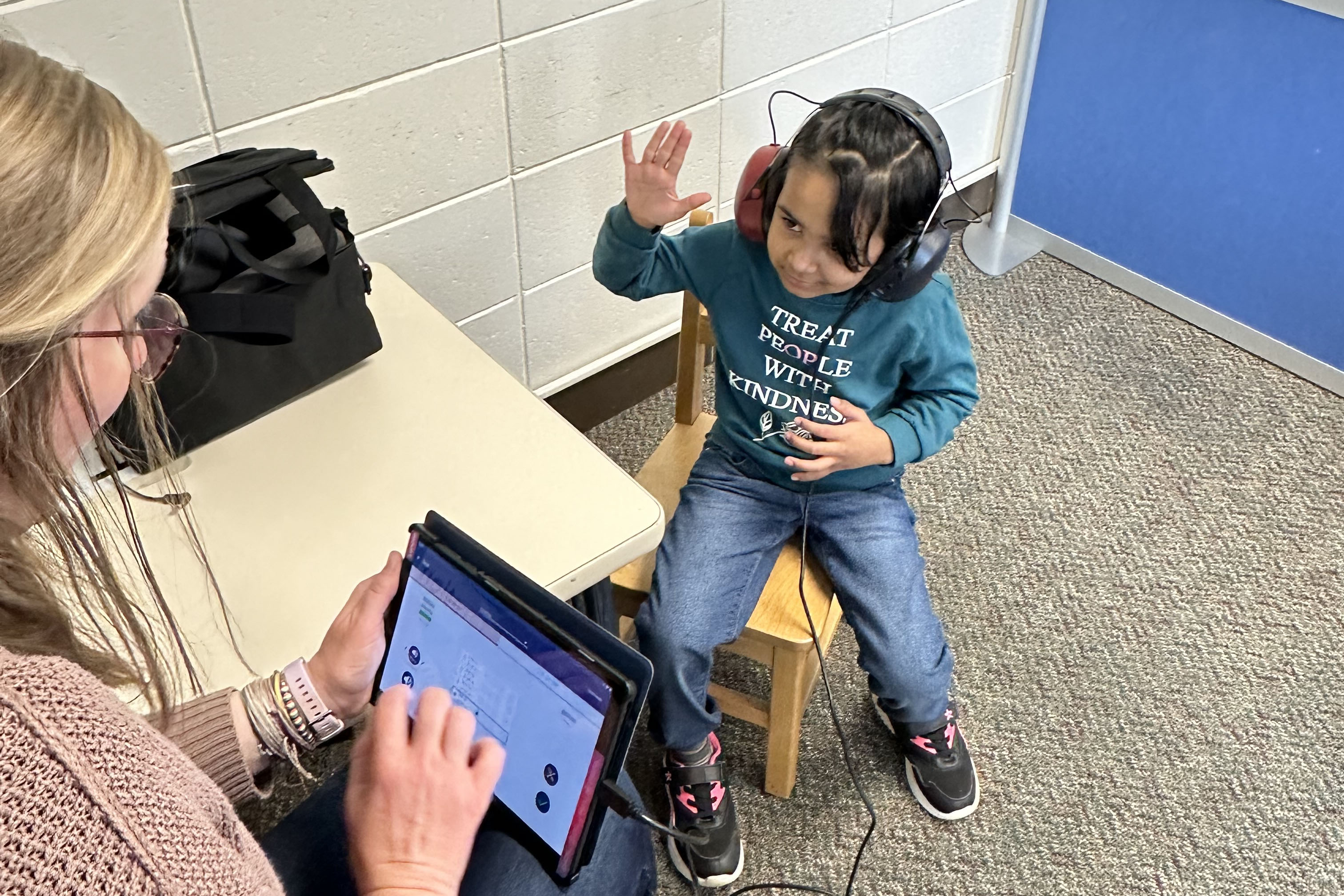
The detailed reports generated by the new equipment provide parents with clear information about their child's specific needs, encouraging prompt follow up.
“I have observed a change in parent response,” said Dr. Molly Coyne, Director of Learning Supports with Bloomington Public Schools. “With our previous way of screening, they did not take it seriously and parents could see that their child…maybe didn’t understand the directions. Now the print out shows them exactly what their child’s vision is and what they need to be evaluated for.”
Bloomington Public Schools is committed to providing high-quality early childhood screening services. The purchase of the Spot Vision Screener and Easy Tone Audiometer represents a significant step forward in ensuring that all children can reach their full potential.
The preparation of this content was aided by Gemini AI, version 1.5.
After-school programming
Bloomington Public Schools will enhance access to their after-school programming for middle school students to support student health and well-being. The school district will expand its sports offerings and create a more efficient registration and attendance system. Grant funds will be used to purchase supplies for multiple sites for students to play basketball, soccer, volleyball, and flag football. Funds will also be used to train staff in a new attendance system and support communication with families.
Quality programming for students with Attention-Deficit/Hyperactivity Disorder
The school is also partnering with its ADHD Learning Lab to support students with Attention-Deficit/Hyperactivity Disorder and other learning challenges and increase their sense of belonging.
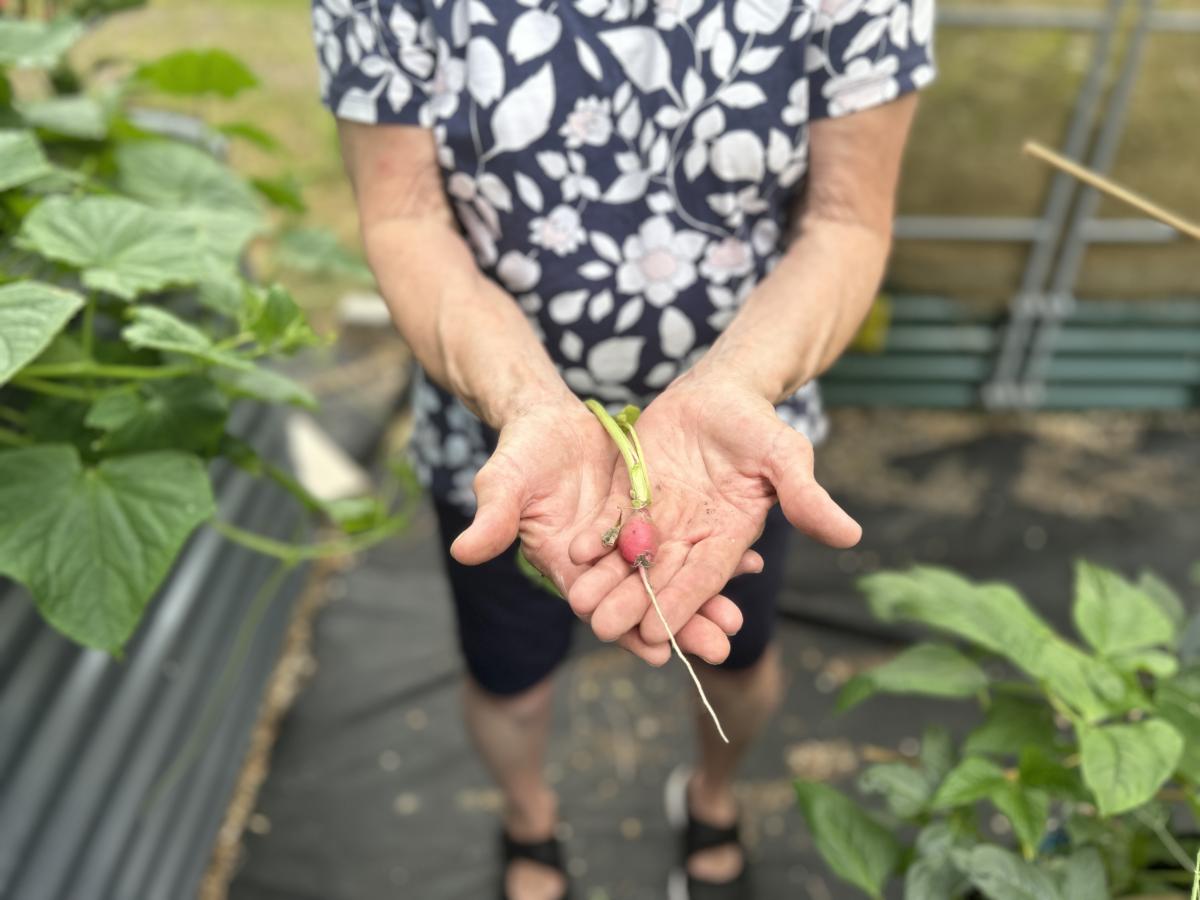
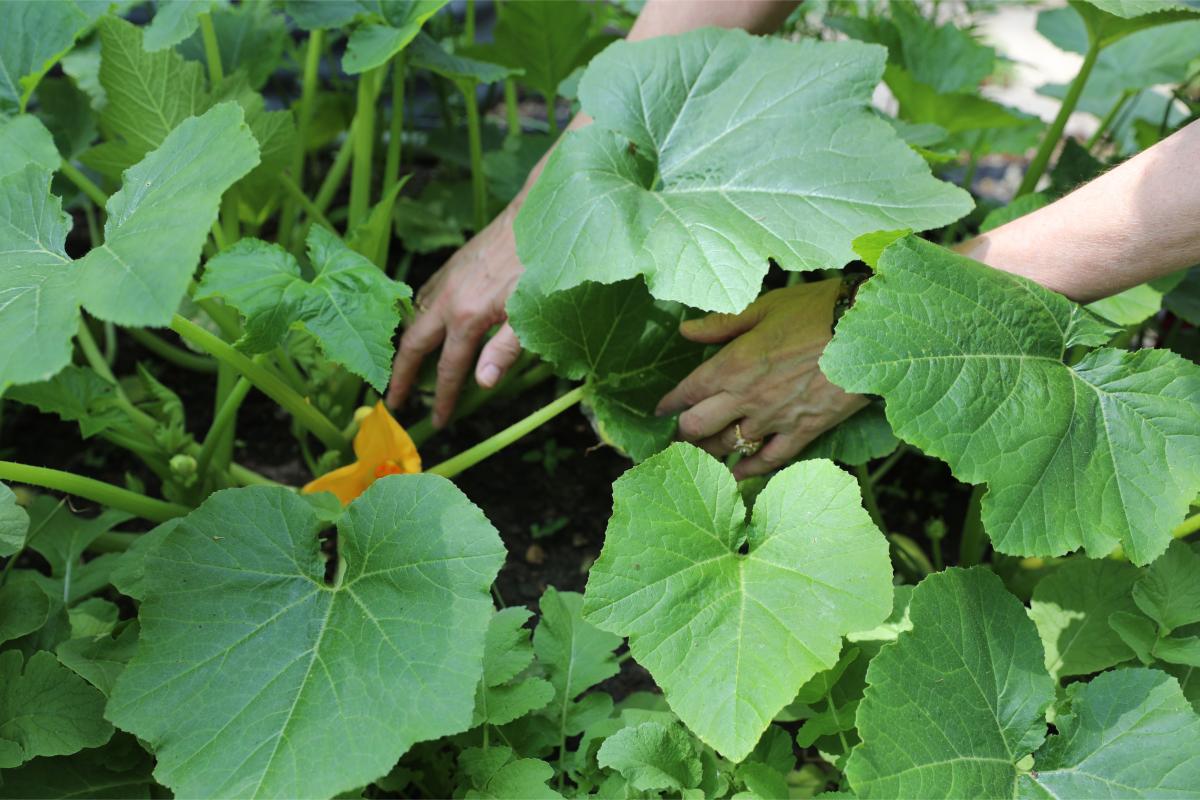
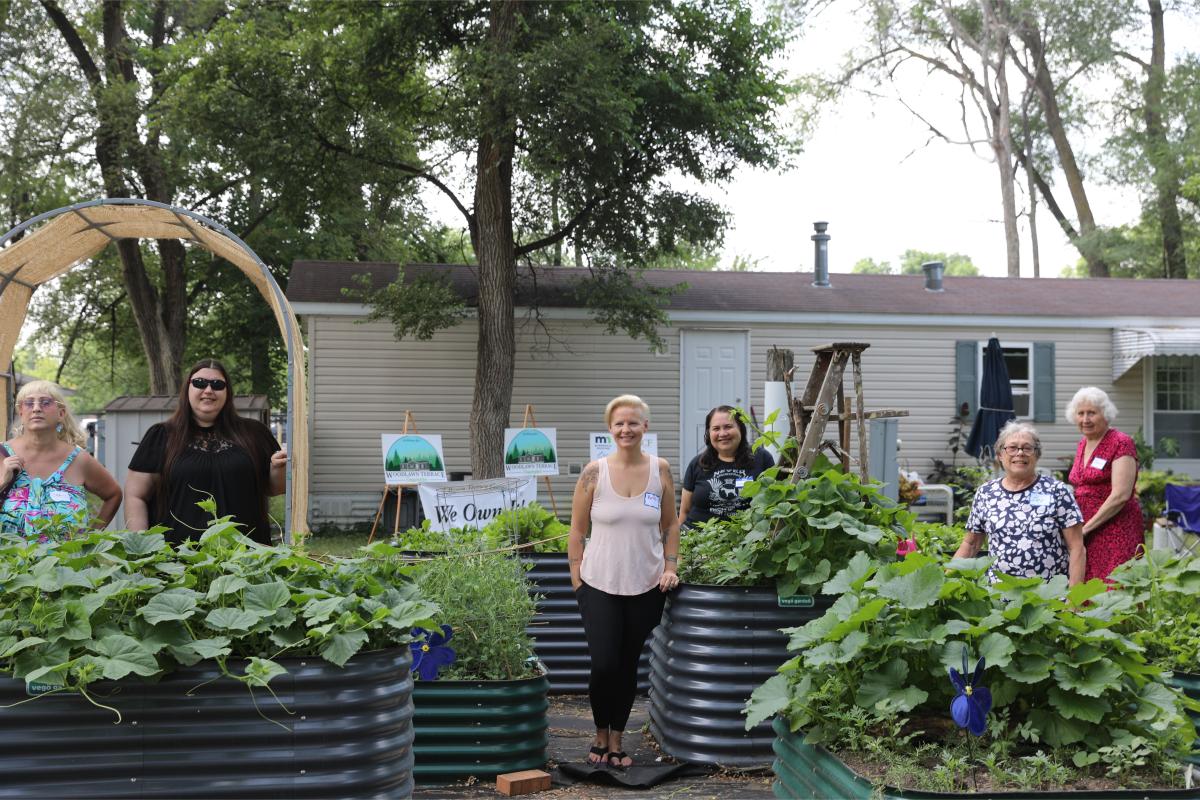
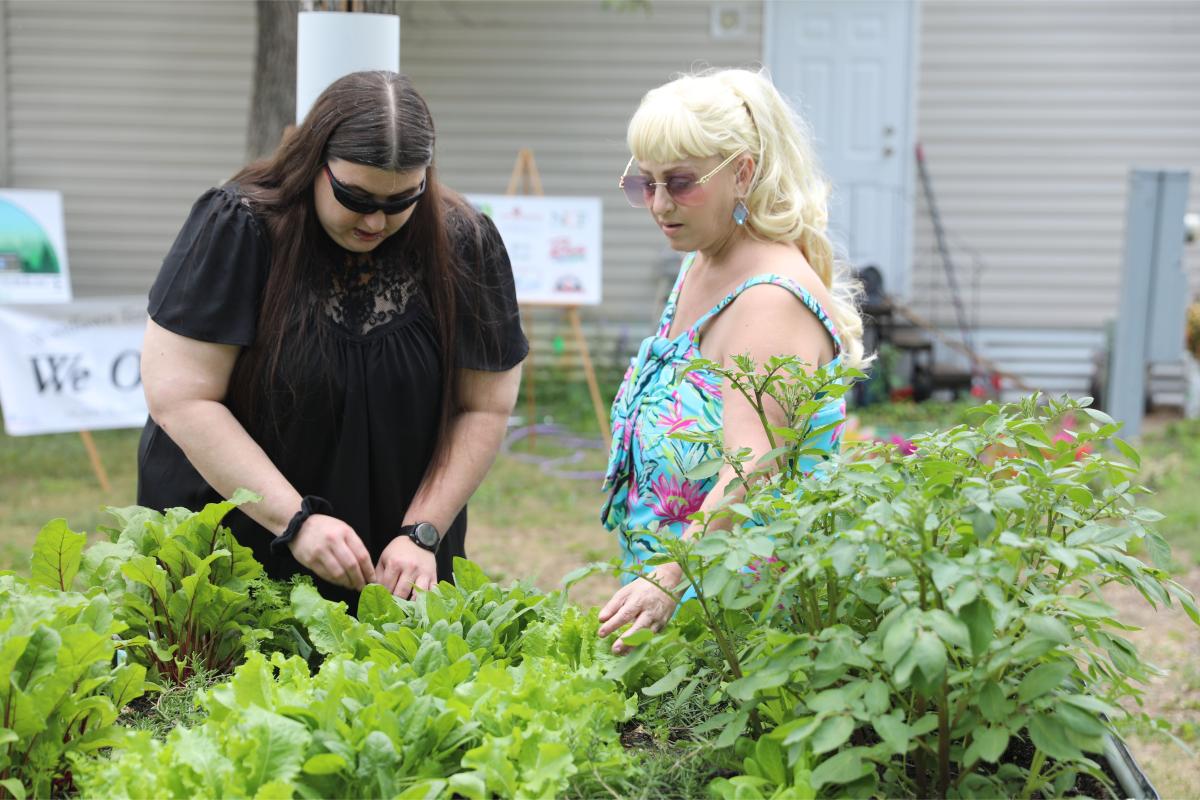
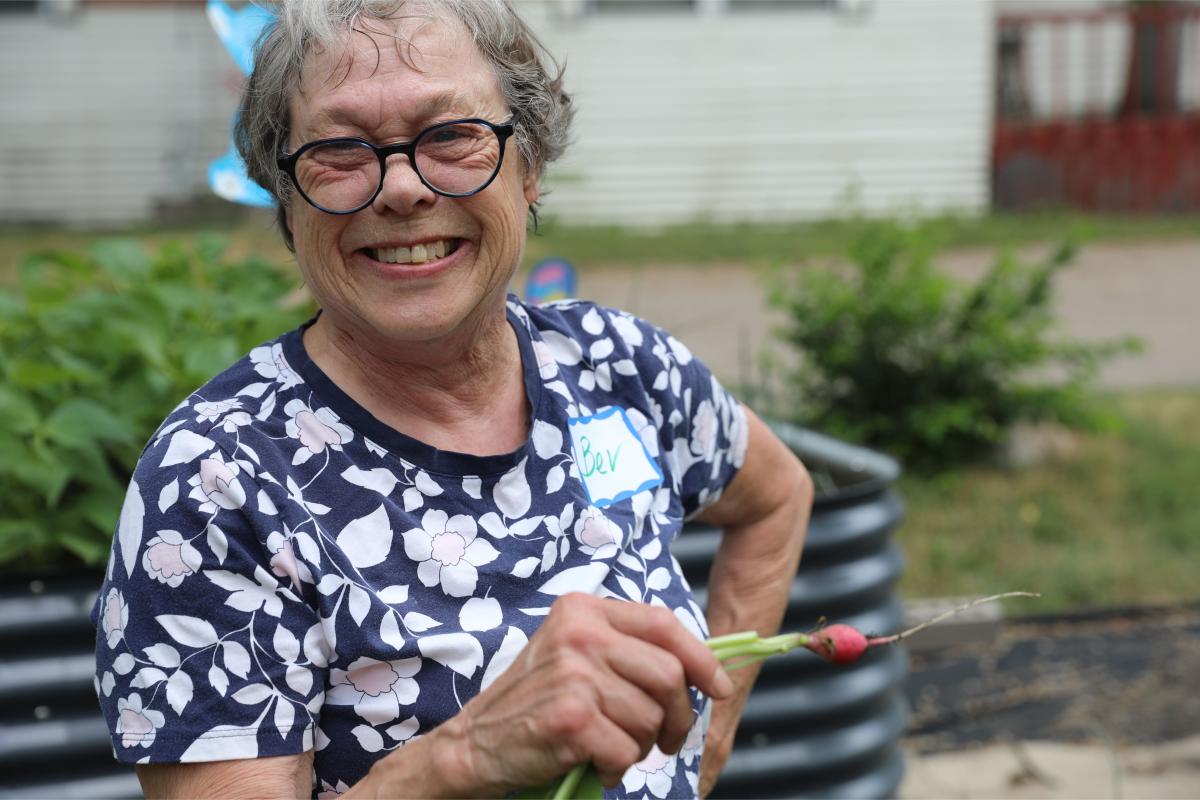
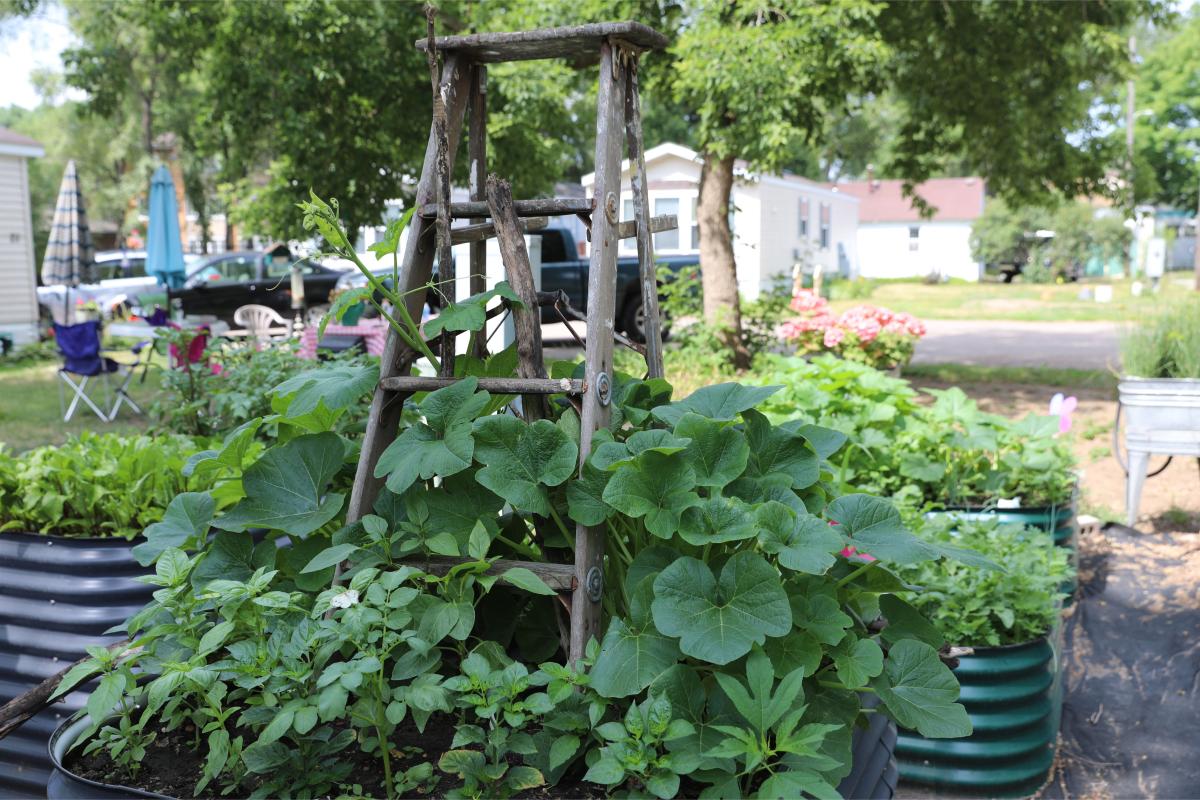
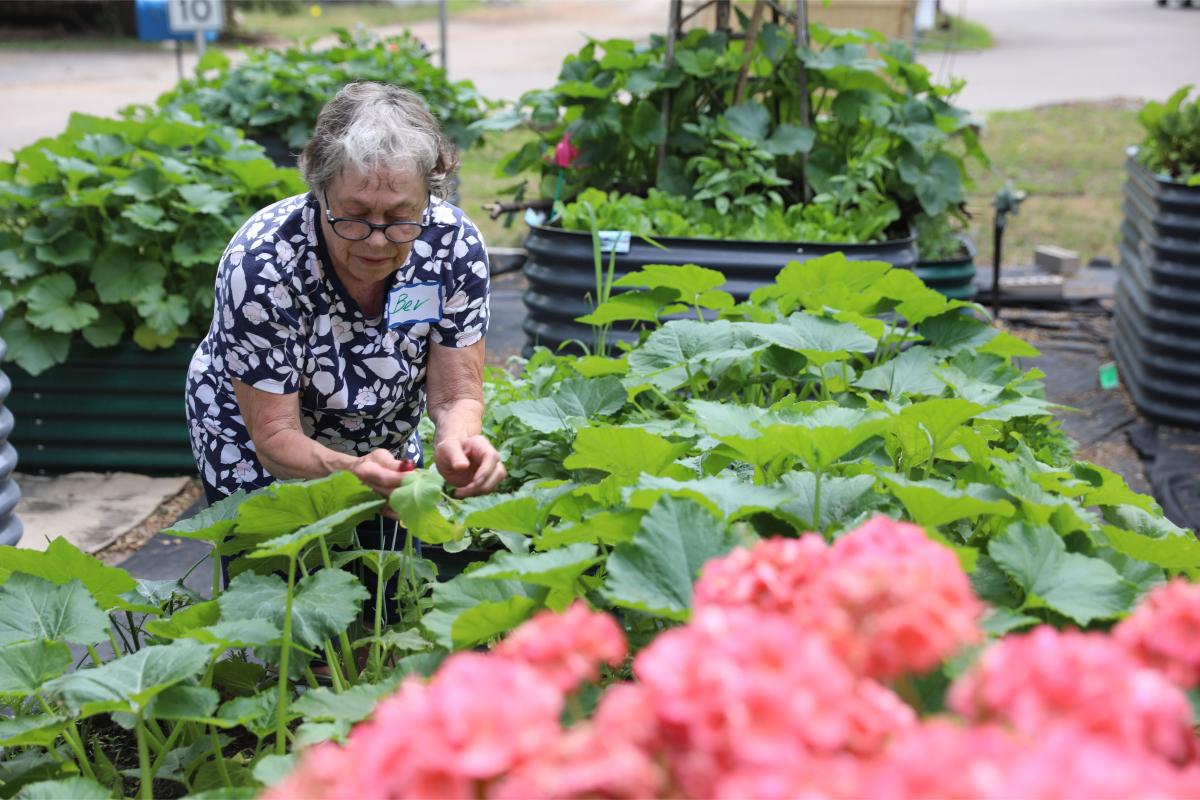
Photos from the community garden at Woodlawn Terrace Cooperative and yoga class at Southgate Apartments
When community members cannot access safe and affordable housing it impacts their physical and mental health. In 2018, the Division’s Health Equity Data Analysis found stark health disparities between renters and homeowners. For example, renters are more likely to exercise less, forgo medical care, and visit the dentist less often. Renters also reported poorer general health, more diagnosed depression and asthma.
To help reduce these disparities, Public Health has prioritized building relationships with renters and expanding their leadership skills. In collaboration with HOME Line, a nonprofit tenant advocacy organization, Public Health established an onsite presence at two large multiunit rental complexes in Bloomington. This work is further supported by a bilingual Community Health Worker in the Division.
Public Health identified three tenants to participate in a formal tenant leaders cohort, and began holding Tenant Coalition meetings in September 2022 to build connections among tenants. The Coalition is made up of tenants who are motivated to facilitate change toward bettering their living conditions and finding support within their buildings. Through these meetings, staff empowered renters as active participants in shaping the policy, systems and environments that influence opportunities for health where they live.
“I couldn’t wait to share some of the things I have been learning. I know that I’ll be developing skills I can take forward with me. Being a single mom working multiple jobs, I didn’t always have the time to participate in my community. To have a consistent way to give back, that’s what I see this [leadership role] as.”
- Davina St. James, Tenant Leader Cohort member
Together, Public Health staff and tenants are leading the way to change policies, systems and environments at the intersection of health and housing. The partnership with HOME Line lends itself to statewide reach and collective impact to address social factors of health between housing providers, renters and local public health.
